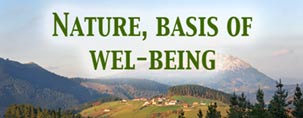Resources at hand
Ibarraundi Museoa
In order to have a facility dedicated to history, and to complement the study of this subject at Luis Eceiza School, the Eskoriatza Town Council created the town's Museum School in 1986.
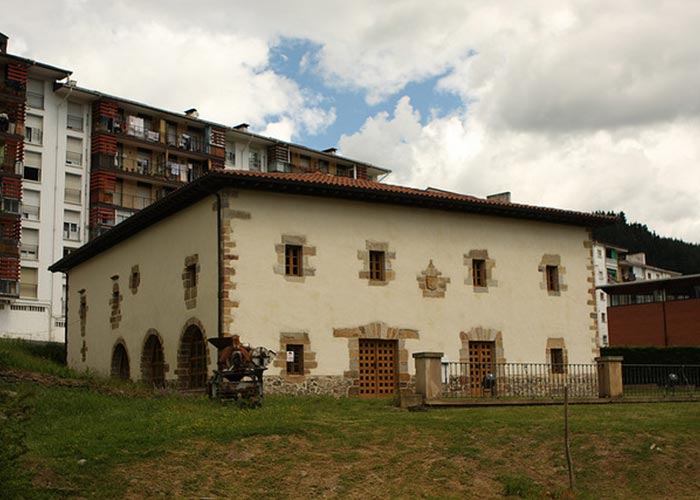
Years later, after the purchase by the consistory of Ibarraundi Palace, it was decided to move exhibition facilities there, a space that, in addition to its current name, has given the museum much better facilities for its work to protect, study and disseminate the historical heritage of Eskoriatza and Leniz Valley.
The building, which is believed to have been built in the mid-fifteenth century, belonged to the family Galartza and during its lifetime it has served not only as a palace but also as a tower house or country house. Currently, it offers various rooms that allow visitors to explore the history of the area between its four walls.
Leniz Room: In this room there is an audiovisual presentation in which the actual palace narrates in the first person the transformations it has undergone since the Middle Ages to discover the origins of the population. For its part, Atxorrotz Castle, sentinel of Leniz Valley, gives a brief review of the medieval era: economic and social structure, how the rural districts emerged, struggles between lords and nobility of the demarcation, when and how the valley settlements arose, etc.
History exposed: A second gallery takes you through the area on a journey to prehistory, from the Palaeolithic and the Iron Age, passing through the Neolithic or Bronze Age. It displays, among other things, the replicas of the Axtroki bowls belonging to the time of the Hallstatt Culture of the Iron Age and which have become over time one of the most representative symbols of Eskoriatza.
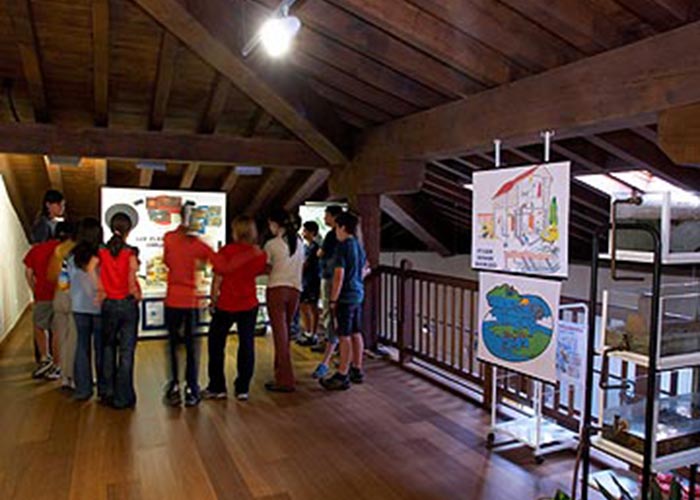
Etnography: the third room helps us to understand the influence of the different economic sectors (flax, iron, school, printing books or home) and the myths, rites and beliefs in society throughout history.
Guided tours
Ibarraundi Museoa offers guided tours to school groups and the general public by appointment on:
Tel/ Fax: 943 71 54 53
ibarraundi@eskoriatza.net
Opening times
- From Monday to Friday: 9:00-14:00
- Temporary exhibitions:
- o Mornings: 9:00-14:00
- Evenings in winter: 17:00-19:00
- Evenings in summer: 18:00-20:00
Address
Ibarraundi museoa
Intxaurtxueta z/g
Eskoriatza (Guipúzcoa)
Videos
State of the Planet

In this documentary, Attenborough shows us the innumerable and disturbing damage caused to life on this planet by the disappearance of species. For example, the presenter explains that in our natural environment key species exist that take with them the disappearance of many others or even of an entire ecosystem, they cannot live in isolation but need to be linked to many others and when, for one reason or another, these links are broken, crises occur in the ecosystem that can threaten the environment itself.
BBC/Discovery Channel, 2010
Baso ahaztuak
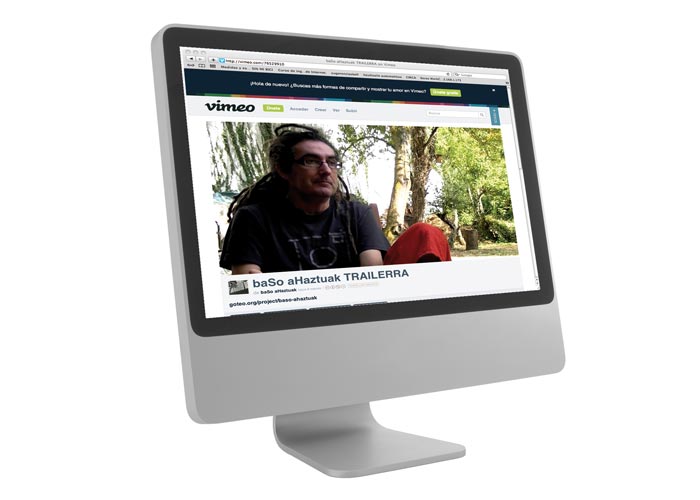
Goteo Euskadi has presented a new film that aims to help us understand and remember how we arrived at the current situation of our forests. Aimed at anyone interested in forest management and the different ways of understanding this model throughout history, the documentary relates the transformation suffered by Basque forests from the Neolithic period until the 21st century. It aims to reflect upon the current state of this environment and to present different alternatives that are underway through, for example, debates such as the one established in society about growing pine trees, a discussion that has been totally unproductive and in which no agreement has been reached on the balance between the benefits and harm imposed on this type of crop. Baso Ahaztuak aims to inform about interesting experiences, propose new alternatives or expose results of numerous scientific research studies. It also highlights the importance of nature and biodiversity in society.
Other videos
Millennium Ecosystem Assessment in Bizkaia
Interview with Miren Onaindia in Spanish
Knowledge for action. Millennium Ecosystem Assessment
Oceans
Vértice Cine, 2010 (100 min.)
BOOKS
Ecosystem Services and Human Wellbeing
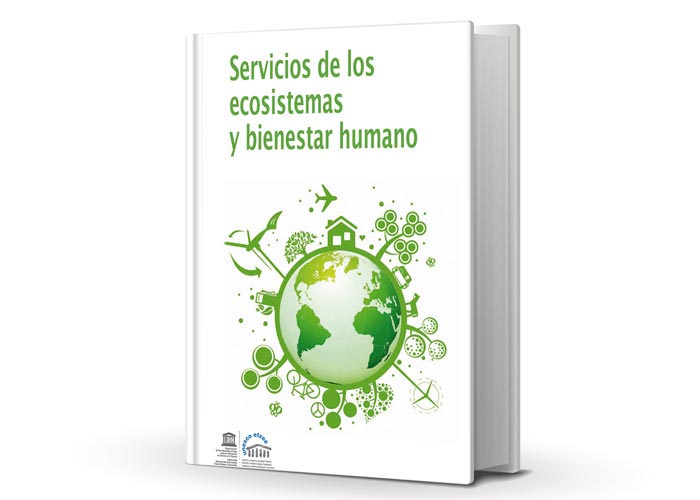
Specialists from different socio-political areas and contexts discuss in this publication the importance of the ecosystem approach and how the Millennium Ecosystem Assessment contributes to its dissemination. The book aims to cover a range of topics such as the roles of the international framework, policy makers and institutions, social participation, science and technology, socio-cultural aspects such as gender, social and environmental communication roles, etc. in a common thread: ecosystem services for human well-being. Its pages contain testimonies from, among others, Miren Onaindia, Director of the UNESCO Chair on Sustainable Development and Environmental Education at the University of the Basque Country (UPV/EHU) and author of the initial article in this issue of Ihitza (On the front page); Salvatore Arico, Biodiversity Specialist at UNESCO; technicians from the Department of Ecology at the Autonomous University of Madrid; Yayo Herrero, Coordinator of the Complutense Centre for Environmental Studies and Information at the Complutense University of Madrid; or specific cases of two sub-global assessments recognised by the UN.
Unesco Etxea, 2010 (77 págs)
Four Great Challenges
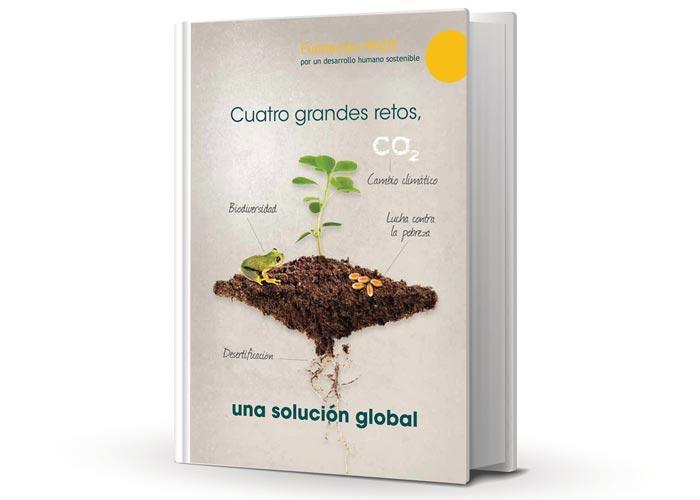
Given the new challenges posed globally due to the current socio-environmental crisis, a group of professionals from the field of cooperation, public administration and research decided to hold in Madrid in September 2010 an interdisciplinary seminar, organised by the IPADE Foundation, to discuss imaginative solutions and proposals for change to combat poverty from a global perspective. 'Four great challenges, one global solution' intended to provide a forum for discussion to make progress towards building a new vision of the links between combating poverty and the three major international environmental conventions of the day: climate change, biodiversity and desertification. The publication, structured into eight large blocks divided by content, aims to collect many of the reflections made in this forum through the papers presented during the forum by different participants.
González, J.A. y Santos,I.
IPADE Foundation and Spanish Development Cooperation Agency, Madrid 2011 (306 pages)
ISBN: 978-84-693-8774-0
Other books:
52 Tips for Biodiversity
Degueldre, C. and Desmedt, C.
European Commission, 2011 (60 pages)
ISBN: 978-92-79-18620-2
Human Habitat and Biodiversity
Schuster, C., Álvarez, E. and Garcés, F.
Miguel de Cervantes Virtual Library, 2011 (74 pages)
ISBN: 84-89913-76-5
Milurteko Ekosistemen Ebaluazioa Bizkaian
UPV-EHU, UNESCO Chair on Sustainable Development and Environmental Education
UPV-EHU Editions, 2014.
In Print
EDUCATIONAL MATERIALS
The European mink, our most endangered mammal
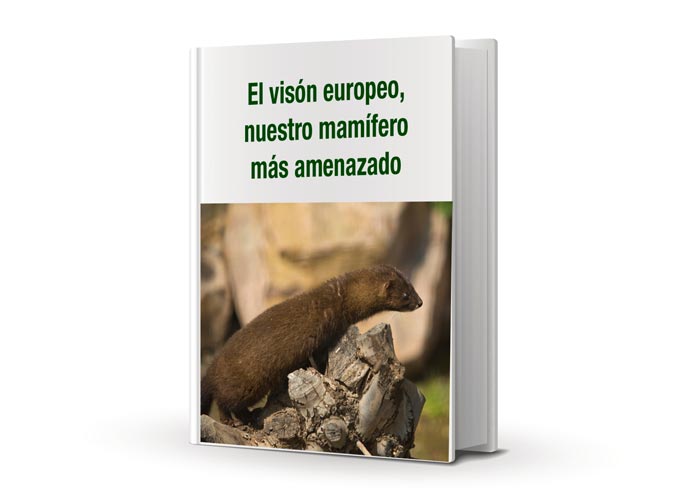
This teaching unit for teachers, published by the Department of Environment and Territorial Policy based on material prepared by the Provincial Government in 2003, aims to provide all schools with a complete information guide about the European mink, one of the most endangered carnivorous species of our natural environment. With this work, adapted to the school curriculum by those responsible at Ingurugela, the aim is also to promote the adoption of behaviour for the protection of biodiversity and the protection of this natural asset among students. This animal is visible in just a few areas of Western Europe, one of which is the Basque Country.
Authors: Idoia Villate, Jorge González, Iñaki Irizar;
Review, Edurne Huesa Otegi (Ingurugela)
Coordination, Direction of Biodiversity and Environmental Participation of the Basque Government (2009)
Millennium Ecosystem Assessment
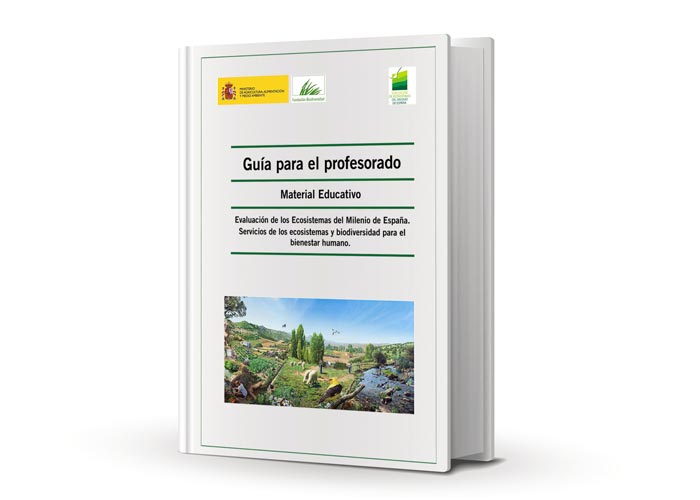
Aimed at Secondary, Baccalaureate and University degree students, the guide is intended to facilitate the use of different educational materials on ecosystems and biodiversity for human well-being that have been developed within the scientific project of the Millennium Ecosystem Assessment in Spain . The pedagogical objective of this initiative lies in contributing to disseminating the key messages of the Assessment, which are relevant to discover the situation of ecosystem, its services and biodiversity for human well-being. The guide may also be helpful to students of non-formal education (monitors or people engaged in the coordination of leisure and free-time groups or environmental education) and to all those interested in environmental issues.
WEBS
Millennium Ecosystem Assessment
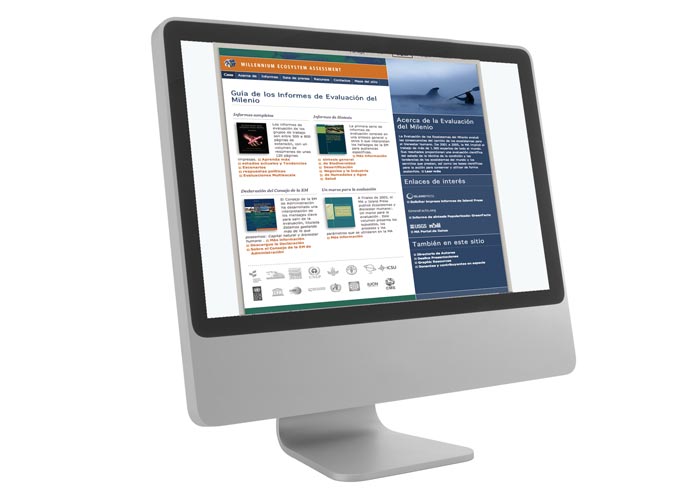
Since the Millennium Ecosystem Assessment was called by the then Secretary General of the United Nations, Kofi Annan, in 2000, this initiative has sought to assess the consequences of changes in ecosystems for human well-being, as well as the scientific foundation for necessary actions to improve their conservation and sustainable use. More than 1,360 experts from around the world have contributed their conclusions since then, data contained in five technical volumes and six synthesis reports is only part of the information on this project currently on this site. The trends in the world's ecosystems and the services they provide and all documentation about the options to restore, conserve or improve the sustainable use of ecosystems can be found in this comprehensive portal.
Ecosystems for Human Well-Being
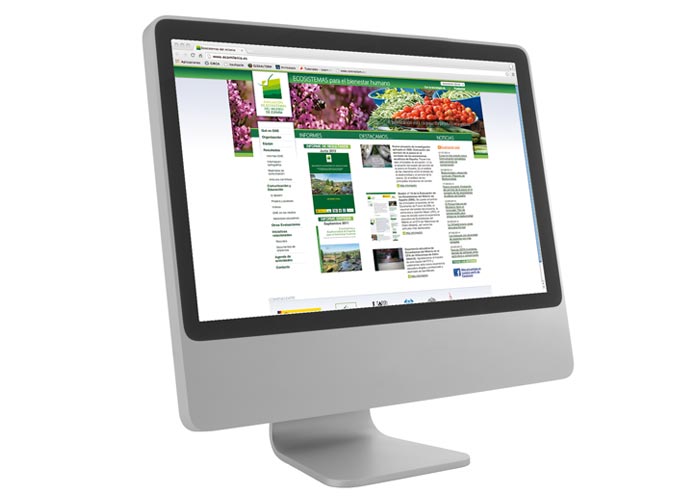
This is the website of the EME, the interdisciplinary scientific programme for the Millennium Ecosystem Assessment, backed by the United Nations, promoted by the Biodiversity Foundation of the Ministry of Agriculture, Food and Environment. The results presented provide information from the sciences for sustainability to managers, companies, NGOs and society in general about the consequences that changes in ecosystems and the loss of biodiversity have on the human wellbeing of their inhabitants. The initiative was developed in Spain in 2009 and three years later presented the results on the assessment of the biophysical dimension shown here.
Millennium Ecosystem Assessment in the Basque Country
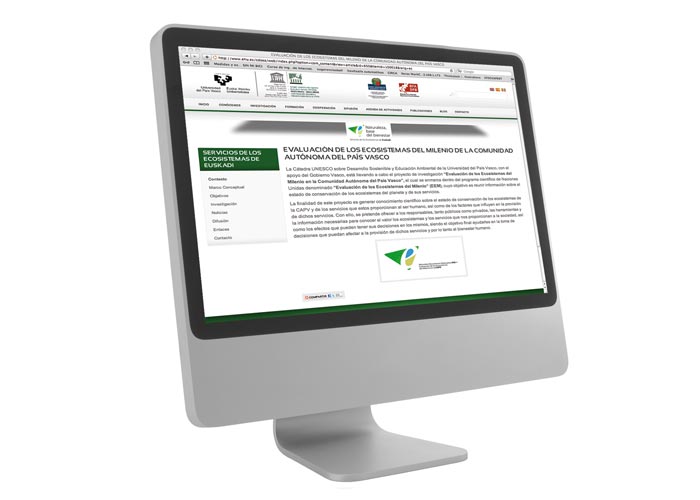
The UNESCO Chair on Sustainable Development and Environmental Education, with the support of the Environment Department of Bizkaia Provincial Council and the Basque Government, is developing the research project 'Millennium Ecosystem Assessment in the Basque Country'. The plan seeks to develop the UN program in order to generate scientific knowledge about the consequences of changes in ecosystems caused by the impact of human activity.

